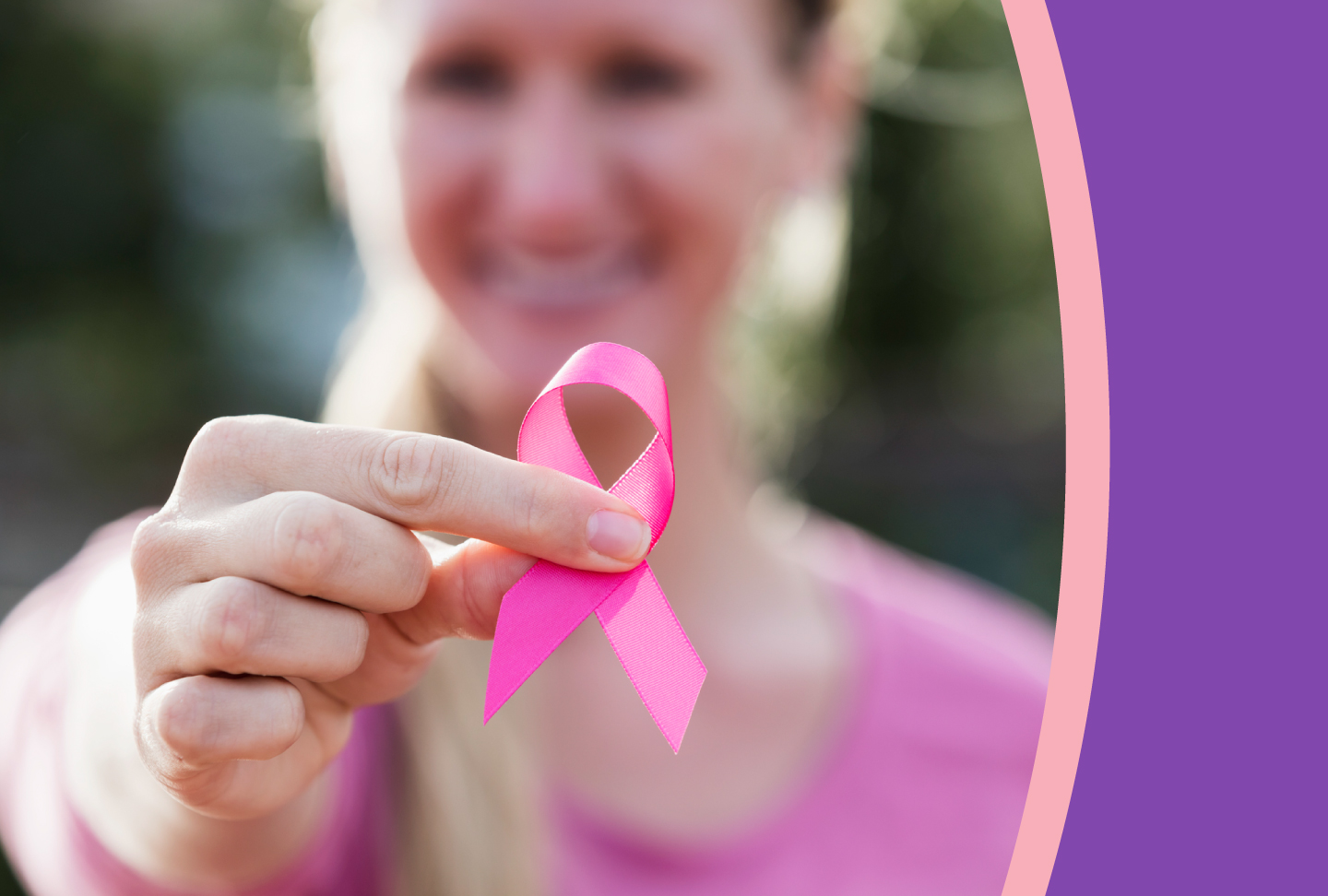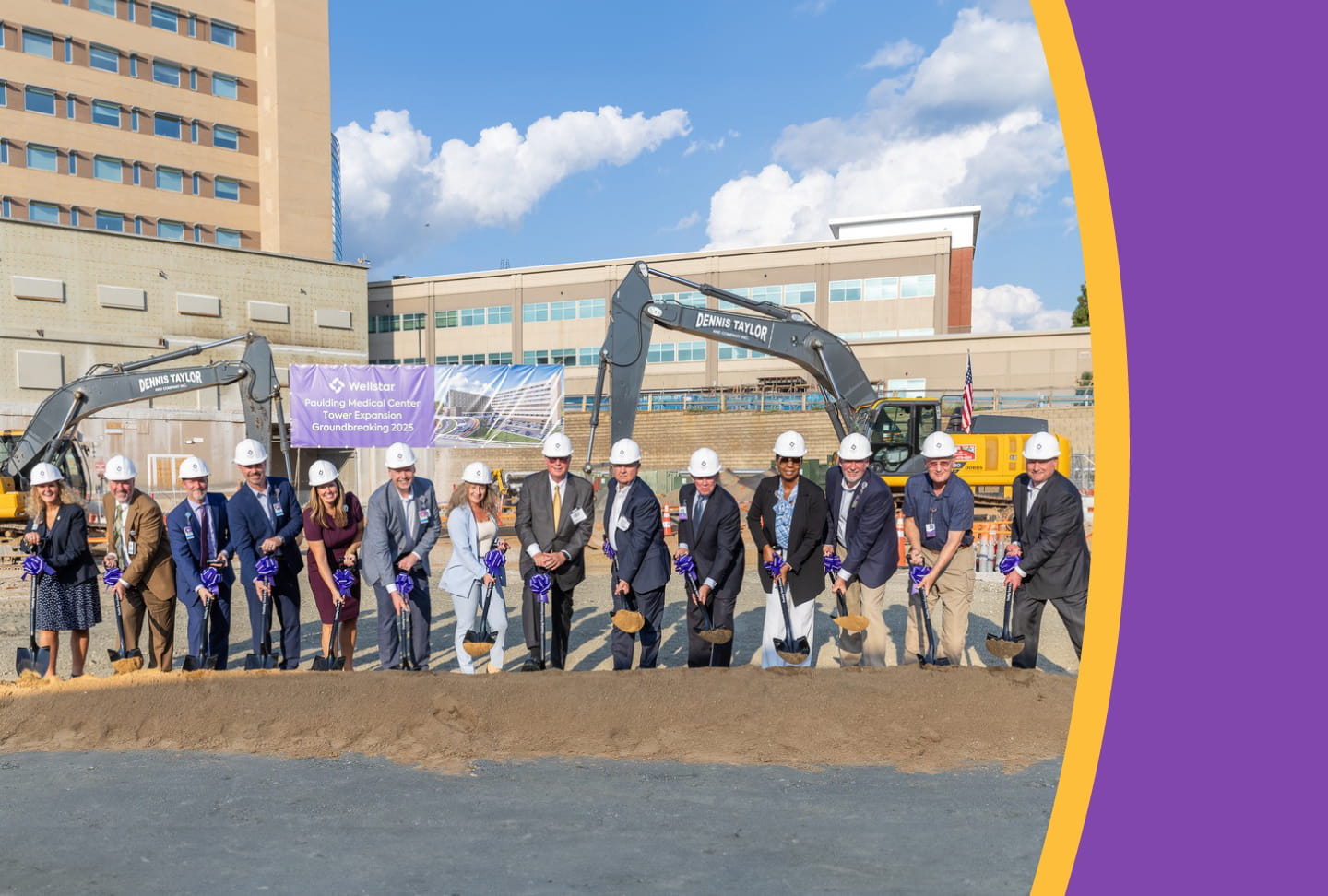According to the
American Cancer Society,
more than 316,000 new cases of invasive breast cancer are expected to be diagnosed in women in the U.S. this year. Breast cancer is the most common cancer among women, apart from skin cancer, and second only to lung cancer as a leading cause of cancer death in women.
It’s important for women to know the symptoms and schedule regular screenings to detect breast cancer early. Remember PINK—Prevention, Information, Next steps and Knowledge—to guide your awareness.
P: Prevention
The best way to detect breast cancer early is by staying connected with your healthcare provider and keeping up with regular visits and screenings, including mammograms.
Who should get screened, and when?
Annual mammograms are recommended starting at age 40. Women with additional risk factors or a family history should speak with their provider about starting screenings earlier.
I: Information
Research and learn as much as you can about breast cancer. Knowing the signs and symptoms could save your life.
What are the symptoms of breast cancer?
Some symptoms may be spotted early. Knowing what to look and feel for can help catch breast cancer before it progresses:
- Lump in the breast or underarm
- Breast swelling or thickening
- Redness or flaking skin on the breast
- Nipple discharge other than breast milk
- Change in breast size or shape
- Pain in any area of the breast
N: Next steps
When a mammogram result is flagged for follow-up care, it can feel scary. At Wellstar, you don’t have to face the process alone. Our
Comprehensive Breast Health Program
offers complimentary concierge services, automatically enrolling patients with abnormal mammogram results. Dedicated nurse navigators guide you through each step of the diagnostic process—helping with scheduling, answering questions and supporting your physical and emotional well-being.
If you are diagnosed with breast cancer, it’s important to partner with your care team to plan your treatment.
What happens after a breast cancer diagnosis?
- Schedule a follow-up visit. Meet with your healthcare provider to ask questions about your diagnosis and treatment options.
- Consult with specialists. At Wellstar, breast surgeons and oncologists work as part of an integrated team to recommend treatment tailored to your condition. Patients also have access to advanced imaging, leading facilities and experts in surgery, radiology, pathology and oncology.
- Explore STAT Clinic. At the
Breast Cancer STAT Clinic
at Wellstar North Fulton Medical Center, a full team—including a breast surgeon, medical oncologist, radiation oncologist, genetic counselor and nurse navigator—meets with you in one place on the same day. Together, they create a personalized treatment plan before you leave, helping reduce the time from diagnosis to treatment from months to just two weeks. This patient-centered model brings the specialists to you, ensuring the most seamless, supportive experience possible.
K: Knowledge
Knowing your personal health, family history and risk factors helps your care team determine if you may be at increased risk of developing breast cancer.
For women ages 24 to 39, Wellstar has partnered with
Gabbi
to offer a personalized, virtual breast cancer risk assessment. The program provides next-day virtual visits with specialists, coordinated imaging at Wellstar and 24/7 concierge support.
What are the risk factors for breast cancer?
- Age. Risk increases as women get older.
- Family history. Having a relative with breast cancer—or a male relative with prostate cancer—can increase risk.
- Previous radiation therapy. Radiation to the chest for other cancers or lymphomas may increase risk.
- Past diagnosis. A previous breast cancer diagnosis raises the likelihood of recurrence.
Wellstar provides comprehensive breast diagnostic and treatment options, along with support services to help patients and families navigate their journey.
For more information, visit
wellstar.org/breastcancer.



